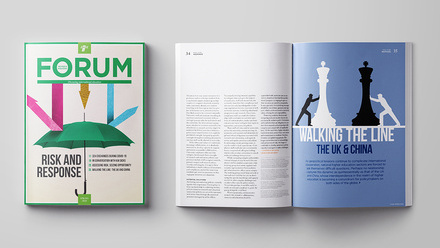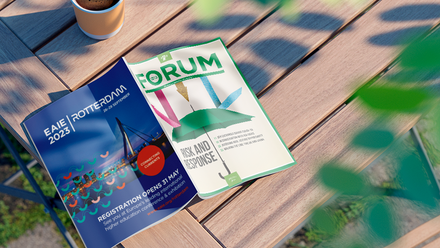Navigating new realities in international academic collaboration

In face of new geopolitical realities, many European countries have developed guidelines to strengthen the protection of academic values and institutional security in international cooperation in research, innovation and higher education.
Increased geopolitical tension following the war in Ukraine and the deterioration in US-Chinese relations have shifted the balance of the international world order. This has also affected higher education institutions (HEIs) and research institutes in Norway. National threat assessments in Norway have for several years pointed out research institutes and HEIs as attractive targets for foreign interference. These concerns became alarmingly tangible in Norway in the autumn of 2022 with the arrest of a suspected Russian intelligence officer posing as a Brazilian self-financed student at the Arctic University of Norway in Tromsø.
De-coupling international cooperation with challenging countries is not an option
Against this backdrop, ‘Guidelines and tools for international knowledge cooperation’ was launched in Norway in August 2023. The guidelines are available in two forms, as an online toolkit and as a report.
A principal stance taken in the guidelines is that international academic collaboration should be recognised as a crucial component of Norway's readiness. De-coupling international cooperation with challenging countries is therefore not an option. However, it is essential to adapt academic collaborations to evolving and demanding international conditions.
Guidelines on responsible international cooperation – policy and terminology
In January 2022 the Norwegian Ministry of Education and Research gave the Norwegian Directorate of Higher Education and Skills (HK-dir) and the Research Council of Norway (RCN) the mission of developing guidelines for responsible international cooperation for the Norwegian HEIs and research and innovation sector. The Panorama strategy served as the policy foundation for the mission. This strategy coordinates Norwegian international cooperation in research, higher education and innovation with nine strategic countries outside of Europe: Canada, China, Brazil, India, Japan, Russia, South Africa, South Korea and the United States of America. Academic collaboration with Russian institutions is currently frozen as part of the international sanctions following the outbreak of war in Ukraine.
The Panorama strategy includes a set of principles that point the way for international academic cooperation, and aside from the principles of quality, relevance and reciprocity, a principle of accountability is included. Accountability is defined as "when entering into specific academic cooperation, consideration should be given to fundamental academic values and national interests including security interests". This definition has been central to the development of the guidelines, which address not only security issues, but also academic values and ethics. HK-dir and RCN have designed the guidelines to assist the research institutes and HEIs to put into practice the principle of accountability in their unique institutional settings. The goal is to facilitate and stimulate international academic collaboration.
The guidelines’ overall advice is to strengthen the preparation and systematic planning of international cooperation. There is a need to raise awareness in the scholarly community of potential challenges and threats. Enhancing institutional support for the scholarly community and their international collaborations is also necessary to navigate the growing geopolitical complexity and tension. Particular attention should be given to due diligence assessment of potential partners, and the way that cooperation is set up to protect central academic values and fields of knowledge, particularly where national security interests are at stake.
Guidelines and tools – the basic structure and potential usage abroad
The Norwegian guidelines are national in the sense that they provide an overview of the laws and regulations that the Norwegian research and education sector need to adhere to. This includes both national and international regulations. The report gathers and makes available other existing tools and resources in Norway, for example guidelines in assessing institutional values developed by the Norwegian National Security Authority. The guidelines point to known challenges and threats tied to specific activities in the research and education sector such as recruitment, visiting scholars, scholarly travel, work abroad, research ethics and academic values, as well as privacy and data protection.
The Norwegian guidelines are designed for two target groups – leadership and management – and the scholarly community. The guidelines make available different sets of recommended assessments and methodology for the two target groups based on their work tasks. These may be used as a basis for discussions and reflections in the process of planning, or as a checklist to ensure that all important aspects, both ethical questions and security issues, have been considered.
For an international audience, these recommended assessments along with suggested methodology from international resources are probably the most useful resources in the guidelines. Contrary to other European guidelines that focus mainly on research and innovation activities, the Norwegian toolbox also addresses international cooperation in higher education, including student mobility and partnership agreements. Below you find an example of recommended assessments when planning international higher education cooperation in relation to academic freedom and security issues.
Academic freedom:
- To what extent is academic freedom safeguarded in the curriculum and teaching?
- To what extent can students, employees and others involved in the cooperation be subjected to political pressure?
- What support is available through the cooperation to students and research fellows on exchange?
National security, export control and data protection:
- What are the reasons for the choice of country/countries and partner(s); is it necessary to carry out a due diligence assessment?
- Do the subject area, activities, countries and partners necessitate assessments covered by Export Control Regulations?
- What are the possibilities of student involvement in research activities? Will such involvement require special security measures?
- Can partnership or project plans be implemented without violating applicable legislation in any of the countries, eg related to data protection?
Practical issues:
- How is the academic year structured and the budget year organised, and how does the partner institution organise the reception of international students?
- What arrangements are in place to help students to prepare for stays in partner countries and at partner institutions?
- From what level of the partner institution does the legal agreement need support to be implemented? Has the cooperation been approved at the correct level?
While answers to these questions must be determined on a case-by-case basis, at the academic institutions and in the scholarly community, the Norwegian ‘Guidelines and tools for international knowledge cooperation’ can assist in recognising areas of challenges and risks. Moreover, they provide means to readjust and adapt international academic cooperation to the complex geopolitical dynamics of our times.



